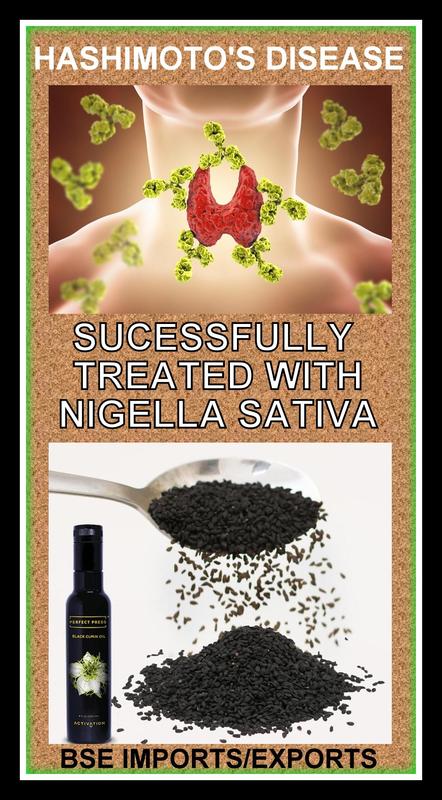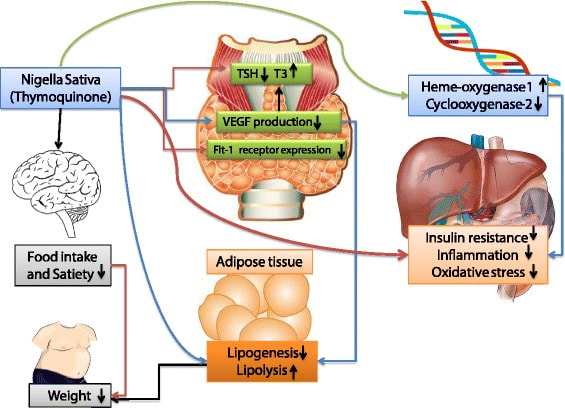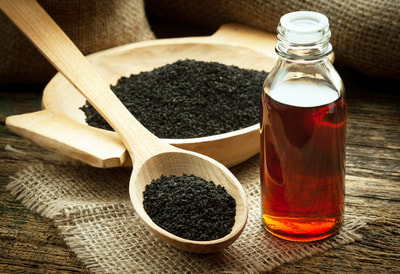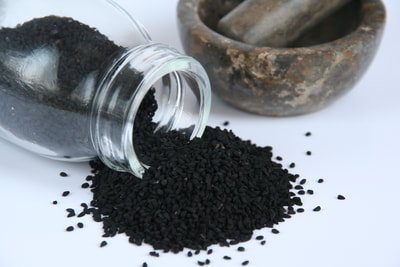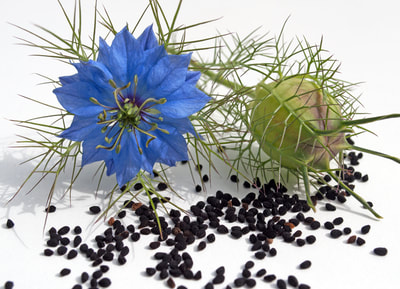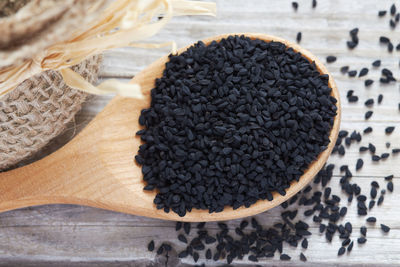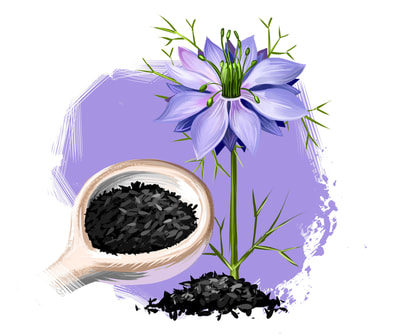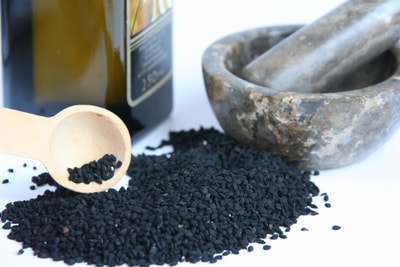- HOME - START HERE
- CONSULTATION SERVICES
- 911 EMERGENCY
- EBOOKS
- Store
- DOSAGES
- HOW TO TAKE
- ANTI-AGING
- CBD AND NIGELLA SATIVA
- RESEARCH SHOWS THAT CANCER RATES WILL RISE DRASTICALLY OVER THE COMING YEARS
- FIBRO CATEGORY
- HERPES CATEGORY
- HIV- Category
- Honey - Category
- Pets
- Top 20 Reasons to use Black Cumin Oil and Capsules
- STROKES CATEGORY
- WEIGHT LOSS CATEGORY
- ANSWER THE QUESTIONS
- Articles
- BLACK SEED OIL IS BETTER THAN TYLENOL FOR ARTHRITIS RELIEF
- Migraines - Headaches - 12 Remedies with Pictures
- My Protocol for Dementia Recovery
- PCOS and Nigella Sativa
- PRIVACY POLICY - GDPR COMPLIANT
- My Team
- About
- Healthy Articles
- Nigella Sativa Online Courses - Part 1
- Childhood Epilepsy
- Natural Diuretics
- Healing Effect on Sarcoidosis
- Nigella Sativa Respiratory Illness
- Cardiovascular Disease
- Depression and COVID19
- 12
- How to Use Nigella Sativa
- How Contagious is Leprosy
- Supporting Human Health - The Immunomodulator
- Nigella Sativa Cancer Ebook
- OK, I am a Muslim - Now What?
- Everything You Ever Wanted to Know About Black Seeds
- Islam Cancer Ebook
- DONATION
- Nigella sativa is an safe alternative Non-Hodgkin’s treatment option
- RESEARCH ON WHY YOU SHOULD HEAT NIGELLA SATIVA SEEDS
- Black Seed Cuisine Ebook
- IS THERE A CURE FOR LUPUS - NATURAL SOLUTIONS
- Black Seed Oil
- TURMERIC DETOX AND MORE
- MASTERS OF HEALING
- PAYMENT RECEIVED
- Non-clickable Page
- IRRITABLE BOWEL SYNDROME - NATURAL SOLUTIONS
- MY CANCER COLLECTION
- CONTACT
RESEARCH SHOWS THAT NIGELLA SATIVA SUCCESSFUL IN TREATING UNDERACTIVE THYROID
A BETTER OPTION FOR HASHIMOTO'S?
WRITTEN BY DR. NITA SHARMA NAS - SEE ALL OF HER ARTICLES HERE
THIS ARTICLE IS COPYRIGHTED FOR NIGELLA--SATIVA.COM. ALL RIGHTS RESERVED. THIS ARTICLE CONTAINS AFFILIATE LINKS I RECOMMEND. PLEASE SEE OUR DISCLOSURE POLICY.
THIS ARTICLE IS COPYRIGHTED FOR NIGELLA--SATIVA.COM. ALL RIGHTS RESERVED. THIS ARTICLE CONTAINS AFFILIATE LINKS I RECOMMEND. PLEASE SEE OUR DISCLOSURE POLICY.
|
Introduction
Underactive thyroid gland condition causes underproduction of thyroid hormones, which leads to several undesired biological changes and results in many sign and symptoms. The clinical experts evaluate the different factors involved in underactive thyroid gland functioning. The primary finding is faulty immune system response which initiates progression of autoimmune disease in the thyroid gland. However, certain epidemiological factors also deregulate thyroid hormone secretion, such as global warming, which is one of the major cause of increased incidence of underactive thyroid gland condition, as in hot climate thyroid hormones release is decreased due to reduced secretion of TSH (thyroid a stimulating hormone). TSH is secreted by pituitary gland present in the hypothalamus (certain region of the brain) and play an important role to control thyroid gland functioning.
The deficiency of iodine and selenium, the two important minerals also causes decreased secretion of thyroid hormones. In addition, a chronic stressful condition also causes underproduction of thyroid hormones. One of the most common thyroid gland related autoimmune disorder is Hashimoto’s thyroiditis. |
Levothyroxine sodium is a drug of choice in underactive thyroid gland associated disease conditions, including Hashimoto’s thyroiditis. [1] But, the main concern in prescribing this drug for a prolonged period is cardiac dysfunction, which initiates the therapeutic researchers to search natural therapeutic agent to regulate the thyroid gland function.
Nigella sativa is a successful search result, which showed thyroid protective action and reverses underactive thyroid gland condition in animal research. [2]
Nigella sativa is a successful search result, which showed thyroid protective action and reverses underactive thyroid gland condition in animal research. [2]
Overview of Thyroid Gland and its Hormonal Release
The thyroid gland is a butterfly-shaped endocrine gland located in the frontal area of the neck. The thyroid gland secretes hormones including T3, T4, and calcitonin.
Both T3 and T4 enhances the basal metabolic rate of the body and produces more energy. Calcitonin produced by C-cells plays a major role in calcium metabolism and bone health maintenance.
Overproduction and underproduction of these thyroid hormones are clinically denoted as hyperthyroidism and hypothyroidism respectively and provide many abnormal physiological consequences. [3]
The thyroid gland is a butterfly-shaped endocrine gland located in the frontal area of the neck. The thyroid gland secretes hormones including T3, T4, and calcitonin.
Both T3 and T4 enhances the basal metabolic rate of the body and produces more energy. Calcitonin produced by C-cells plays a major role in calcium metabolism and bone health maintenance.
Overproduction and underproduction of these thyroid hormones are clinically denoted as hyperthyroidism and hypothyroidism respectively and provide many abnormal physiological consequences. [3]
The signs and symptoms associated with underactive thyroid:
The characteristic features of hypothyroidism lead to a decreased rate of body metabolism and causing low energy, tiredness, or constipation. [4] In a progressive hypothyroidism stage, the following are the common symptoms of hypothyroidism: [5]
• Fatigue after short exhaustive work
• Put on weight
• Extremely sensitive to cold temperature
• Pain in joints and muscle
• Irregular bowel movement or constipation
• Hair fall
• Dull and dry hair
• Irregular menstrual cycle with heavy bleeding
• Problem to conceive
• Memory impairment
• Depression
• Slow heart rate
SPECIFIC CHARACTERISTICS OF HASHIMOTO'S
• Abnormal sensation of pharynx
• Hoarseness the
• A sore throat
Hypothyroidism related complications include enlargement of goiter in the neck region, hyperlipidemia, reduced mental functioning, myxedema, and complication in pregnancy (decreased neurological growth of the fetus).
The characteristic features of hypothyroidism lead to a decreased rate of body metabolism and causing low energy, tiredness, or constipation. [4] In a progressive hypothyroidism stage, the following are the common symptoms of hypothyroidism: [5]
• Fatigue after short exhaustive work
• Put on weight
• Extremely sensitive to cold temperature
• Pain in joints and muscle
• Irregular bowel movement or constipation
• Hair fall
• Dull and dry hair
• Irregular menstrual cycle with heavy bleeding
• Problem to conceive
• Memory impairment
• Depression
• Slow heart rate
SPECIFIC CHARACTERISTICS OF HASHIMOTO'S
• Abnormal sensation of pharynx
• Hoarseness the
• A sore throat
Hypothyroidism related complications include enlargement of goiter in the neck region, hyperlipidemia, reduced mental functioning, myxedema, and complication in pregnancy (decreased neurological growth of the fetus).
Brief description of Hashimoto’s thyroiditis
Hashimoto’s is an organ-specific autoimmune disease that mediates through T-cells and affects the thyroid and genes.
Genetics play a crucial contributory factor in developing complexity in Hashimoto’s condition. [6] Different identified genes are responsible for Hashimoto’s disease such as CTLA-4 A49G single nucleotide polymorphisms gene, interleukin-1 receptor antagonist gene, and SEP (selenoprotein) S gene.
Although, the detail contributory mechanism of these genetic factors in Hashimoto’s disease is yet to be discovered. [7]
The above-mentioned hypothyroidism related symptoms usually do not appear in Hashimoto’s disease, but some of these symptoms are apparent in Hashimoto’s disease. [8]
Hashimoto’s is an organ-specific autoimmune disease that mediates through T-cells and affects the thyroid and genes.
Genetics play a crucial contributory factor in developing complexity in Hashimoto’s condition. [6] Different identified genes are responsible for Hashimoto’s disease such as CTLA-4 A49G single nucleotide polymorphisms gene, interleukin-1 receptor antagonist gene, and SEP (selenoprotein) S gene.
Although, the detail contributory mechanism of these genetic factors in Hashimoto’s disease is yet to be discovered. [7]
The above-mentioned hypothyroidism related symptoms usually do not appear in Hashimoto’s disease, but some of these symptoms are apparent in Hashimoto’s disease. [8]
Nigella Sativa Powder and Underactive Thyroid•
In folk medicine and in general population, Nigella sativa is well established as black cumin or black seed. This herbal therapeutic agent has several benefits which are directly and indirectly helpful to treat underactive thyroid.
• Research finding showed that Nigella sativa can able to increase the triiodothyronine (T3) in blood serum by repairing the thyroid gland and also influence to increase production of the thyroid hormone. Researchers expect that this biological changes occur after treating patients with Nigella sativa seeds due to its antioxidant property. However, Nigella sativa seed does not alter TSH level. Treating patients with higher dose of levothyroxine may increase TSH level, which increase the risk of thyroid tumor and miscarriage (in pregnant women), in addition to osteoporosis like adverse effects. [9,10, 11] Therefore, Nigella sativa seeds intervention can improve the underactive thyroid functioning without causing TSH level enhancement related risk.
• Thymoquinone, the active ingredient of Nigella sativa improves the thyroid gland functioning and necessarily alter the thyroid hormone secretion. [2]
• As it is already mentioned hyperlipidemia is one of the primary complication associated with underactive thyroid, which also increase the risk of cardiac disorders which can be solved with Nigella sativa seeds due to its hypolipidemic effects. [2]
• Auto-immune disease conditions like Hashimoto’s thyroiditis is one of the cause of underactive thyroid gland and hypothyroidism condition. Nigella sativa has immuno-modulatory effects, as it can reduce auto-antibodies production, decreases innate and acquired immune cell markers and inhibits transforming growth factor (TGF)-β and interleukin (IL)-23 concentrations. Thus, the scope of developing Hashimoto’s thyroiditis decrease with Nigella sativa seed treatment.[2]
• Goiter is one of the common inflammatory condition arises due to hypothyroidism. The anti-inflammatory effect of Nigella sativa able to inhibit the cyclooxygenase-2 concentration [2] and may be helpful to prevent goiter.
• Obesity and hypothyroidism are two associated co-morbidities. Hypothyroidism often leads to decreased rate carbohydrate and lipid metabolism, which increases the BMI without depending on physical activity. [12] Hypothyroidism related obesity can also be controlled by treating Nigella sativa seeds because of its anti-obesity effect. [2]
In folk medicine and in general population, Nigella sativa is well established as black cumin or black seed. This herbal therapeutic agent has several benefits which are directly and indirectly helpful to treat underactive thyroid.
• Research finding showed that Nigella sativa can able to increase the triiodothyronine (T3) in blood serum by repairing the thyroid gland and also influence to increase production of the thyroid hormone. Researchers expect that this biological changes occur after treating patients with Nigella sativa seeds due to its antioxidant property. However, Nigella sativa seed does not alter TSH level. Treating patients with higher dose of levothyroxine may increase TSH level, which increase the risk of thyroid tumor and miscarriage (in pregnant women), in addition to osteoporosis like adverse effects. [9,10, 11] Therefore, Nigella sativa seeds intervention can improve the underactive thyroid functioning without causing TSH level enhancement related risk.
• Thymoquinone, the active ingredient of Nigella sativa improves the thyroid gland functioning and necessarily alter the thyroid hormone secretion. [2]
• As it is already mentioned hyperlipidemia is one of the primary complication associated with underactive thyroid, which also increase the risk of cardiac disorders which can be solved with Nigella sativa seeds due to its hypolipidemic effects. [2]
• Auto-immune disease conditions like Hashimoto’s thyroiditis is one of the cause of underactive thyroid gland and hypothyroidism condition. Nigella sativa has immuno-modulatory effects, as it can reduce auto-antibodies production, decreases innate and acquired immune cell markers and inhibits transforming growth factor (TGF)-β and interleukin (IL)-23 concentrations. Thus, the scope of developing Hashimoto’s thyroiditis decrease with Nigella sativa seed treatment.[2]
• Goiter is one of the common inflammatory condition arises due to hypothyroidism. The anti-inflammatory effect of Nigella sativa able to inhibit the cyclooxygenase-2 concentration [2] and may be helpful to prevent goiter.
• Obesity and hypothyroidism are two associated co-morbidities. Hypothyroidism often leads to decreased rate carbohydrate and lipid metabolism, which increases the BMI without depending on physical activity. [12] Hypothyroidism related obesity can also be controlled by treating Nigella sativa seeds because of its anti-obesity effect. [2]
Mechanism of action of Nigella sativa in Underactive Thyroid functioning
In normal thyroid cell, VEGF concentration and its receptors Flt-1 are minimal but in underactive thyroid condition, the TSH level is increased to maintain the secretion of thyroid hormones, which causes VEGF level enhancement. Increased level of VEGF concentration causes thyroiditis and thyroid carcinomas.
Nigella sativa can reduce the VEGF level and decrease the risk of thyroiditis and thyroid carcinomas. In addition, hypothyroid induced alteration in thyroid parenchyma can be modulated by the cytoprotective effect of Nigella sativa. [2]
Immunomodulatory effect of Nigella sativa is obtained by reducing anti-TPO concentrations which reduces the risk of Hashimoto’s thyroiditis progression. Thus, Nigella sativa is effective to treat under-activity of thyroid hormone in autoimmune condition. [2]
In normal thyroid cell, VEGF concentration and its receptors Flt-1 are minimal but in underactive thyroid condition, the TSH level is increased to maintain the secretion of thyroid hormones, which causes VEGF level enhancement. Increased level of VEGF concentration causes thyroiditis and thyroid carcinomas.
Nigella sativa can reduce the VEGF level and decrease the risk of thyroiditis and thyroid carcinomas. In addition, hypothyroid induced alteration in thyroid parenchyma can be modulated by the cytoprotective effect of Nigella sativa. [2]
Immunomodulatory effect of Nigella sativa is obtained by reducing anti-TPO concentrations which reduces the risk of Hashimoto’s thyroiditis progression. Thus, Nigella sativa is effective to treat under-activity of thyroid hormone in autoimmune condition. [2]
Evidential support of Nigella sativa against
A human study reported that Nigella sativa supplementation can able to decrease weight, BMI, waist and hip circumference in Hashimoto’s thyroiditis patients.
In the experimental group, a significant reduction of serum TSH and anti-TPO concentrations are reported in result section after treating with Nigella sativa. [2]
The risk of the underactive thyroid gland and hypothyroidism is increased with the incidence of diabetes, whereas hypothyroidism also influences type 2 diabetes by reducing insulin secretion.
An animal trial report showed that Nigella sativa can increase the serum concentration of thyroid hormone in diabetic rats. [13]
A human study reported that Nigella sativa supplementation can able to decrease weight, BMI, waist and hip circumference in Hashimoto’s thyroiditis patients.
In the experimental group, a significant reduction of serum TSH and anti-TPO concentrations are reported in result section after treating with Nigella sativa. [2]
The risk of the underactive thyroid gland and hypothyroidism is increased with the incidence of diabetes, whereas hypothyroidism also influences type 2 diabetes by reducing insulin secretion.
An animal trial report showed that Nigella sativa can increase the serum concentration of thyroid hormone in diabetic rats. [13]
Direction to the application of Nigella sativa in underactive thyroid functioning
Dosing
According to the clinical trial report, the recommended dose for treating patients with Hashimoto’s thyroiditis is 2 gm Nigella sativa supplement per day for 2 months (8 weeks). [2]
Black seed incorporation in diet
Experts recommend that raw organic black seed addition in the daily diet improves underactive thyroid functioning. For this, you can prepare black seed tea by adding the seeds in a hot water and after 10 minutes add some honey and enjoy the drink.
Other options are the addition of black seeds in salad preparation, backed food items, or in green shake recipes are also a good option.
However, black seed capsule and extracted oil are available at my store where I highly recommend the Vine Nutrition Brand. However, it is advisable to take raw black seeds (Kevala is my recommendation) or supplement of Nigella sativa oil as suggested below from Perfect Press Black Seed Oil. [14]
Dosing
According to the clinical trial report, the recommended dose for treating patients with Hashimoto’s thyroiditis is 2 gm Nigella sativa supplement per day for 2 months (8 weeks). [2]
Black seed incorporation in diet
Experts recommend that raw organic black seed addition in the daily diet improves underactive thyroid functioning. For this, you can prepare black seed tea by adding the seeds in a hot water and after 10 minutes add some honey and enjoy the drink.
Other options are the addition of black seeds in salad preparation, backed food items, or in green shake recipes are also a good option.
However, black seed capsule and extracted oil are available at my store where I highly recommend the Vine Nutrition Brand. However, it is advisable to take raw black seeds (Kevala is my recommendation) or supplement of Nigella sativa oil as suggested below from Perfect Press Black Seed Oil. [14]
Recipe for Nigella sativa in underactive thyroid functioning
Immune system related problem is one of the most important causes of underactive thyroid functioning. The following recipe helps to maintain the normal functioning of immune system.Take one bowl and mix all the ingredients with required amount and eat the preparation two times a day. It is always recommended to freshly prepare this item to obtain optimum benefits. [15]
Ingredients:
Take one bowl and mix all the ingredients with required amount and eat the preparation two times a day. It is always recommended to freshly prepare this item to obtain optimum benefits. [15]
Immune system related problem is one of the most important causes of underactive thyroid functioning. The following recipe helps to maintain the normal functioning of immune system.Take one bowl and mix all the ingredients with required amount and eat the preparation two times a day. It is always recommended to freshly prepare this item to obtain optimum benefits. [15]
Ingredients:
- Nigella Sativa Seeds - 2 teaspoons
- Honey - 2 tablespoons
- Ginger Powder - 2 teaspoons
- Nuts - 1 tablespoon
Take one bowl and mix all the ingredients with required amount and eat the preparation two times a day. It is always recommended to freshly prepare this item to obtain optimum benefits. [15]
Diet and Lifestyle changes required to underactive thyroid function
- Dietary iodine intake can be done through the use of dairy products as they are rich in iodine isotopes which prevents hypo-functioning of the thyroid gland. Regular and sufficient iodine intake can help to maintain thyroid health. But avoid sudden shifting from low iodine containing diet to high iodine intake which may increase the risk of thyroid autoimmune disease. [16]
- Supplementation of selenium and vitamin B12, especially in an elderly patient is required to avoid autoimmune thyroiditis. [17]
- A vegan diet can provide protection against hypothyroidism by lowering body weight and controlling BMI. [17]
- Avoid food items like soy products, green tea, and some vegetables like legumes, cabbage, broccoli, cauliflower, turnip, cassava root etc., which imparts negative affects to thyroid functioning and lower thyroid hormone secretion. [16, 17, 18]
References
- Under active Thyroid. Available at https://www.nhs.uk/conditions/underactive-thyroid-hypothyroidism/
- Mahdieh Abbasalizad Farhangi, Parvin Dehghan, Siroos Tajmiri, Mehran Mesgari Abbasi. The effects of Nigella sativa on thyroid function, serum Vascular Endothelial Growth Factor (VEGF) – 1, Nesfatin-1 and anthropometric features in patients with Hashimoto’s thyroiditis: a randomized controlled trial. BMC Complement Altern Med. 2016; 16: 471.Published online 2016 Nov 16. doi: 10.1186/s12906-016-1432-2. Available at https://www.ncbi.nlm.nih.gov/pmc/articles/PMC5112739/
- How does the thyroid work? - PubMed health - National Library of Medicine - PubMed Health. Available at https://www.ncbi.nlm.nih.gov/pubmedhealth/PMH0072572/
- Hypothyroidism - national library of medicine - PubMed Health. Available at https://www.ncbi.nlm.nih.gov/pubmedhealth/PMHT0022776/
- Kawther T. El-Shafie; CLINICAL PRESENTATION OF HYPOTHYROIDISM. J Family Community Med. 2003 Jan-Apr; 10(1): 55–58. Available at https://www.ncbi.nlm.nih.gov/pmc/articles/PMC3425758/
- Dimitry A Chistiakov. Immunogenetics of Hashimoto's thyroiditis. J Autoimmune Dis. 2005; 2: 1. Published online 2005 Mar 11. doi: 10.1186/1740-2557-2-1
- Won Sang Yoo, Hyun Kyung Chung. Recent Advances in Autoimmune Thyroid Diseases. Endocrinol Metab (Seoul) 2016 Sep; 31(3): 379–385. Published online 2016 Aug 26. doi: 10.3803/EnM.2016.31.3.379.
- Hashimoto’s disease (2015). Available at https://www.niddk.nih.gov/health-information/health-topics/endocrine/hashimotos-disease/Pages/fact-sheet.aspx.
- Peter N. Taylor Caroline Minassian Anis Rehman Ahmed Iqbal Mohd Shazli DramanWilliam Hamilton Diana Dunlop Anthony Robinson Bijay Vaidya John H. Lazarus. TSH Levels and Risk of Miscarriage in Women on Long-Term Levothyroxine: A Community-Based Study. The Journal of Clinical Endocrinology & Metabolism, Volume 99, Issue 10, 1 October 2014, Pages 3895–3902, https://doi.org/10.1210/jc.2014-1954.
- Megan Rist Haymart Daniel John Repplinger Glen E. Leverson Diane F. ElsonRebecca S. Sippel Juan Carlos Jaume Herbert Chen. Higher Serum Thyroid Stimulating Hormone Level in Thyroid Nodule Patients Is Associated with Greater Risks of Differentiated Thyroid Cancer and Advanced Tumor Stage. The Journal of Clinical Endocrinology & Metabolism, Volume 93, Issue 3, 1 March 2008, Pages 809–814, https://doi.org/10.1210/jc.2007-2215.
- William J. Hueston. Treatment of Hypothyroidism. Am Fam Physician. 2001 Nov 15;64(10):1717-1725. Available at https://www.aafp.org/afp/2001/1115/p1717.html.
- Debmalya Sanyal, Moutusi Raychaudhuri. Hypothyroidism and obesity: An intriguing link. Indian J Endocrinol Metab. 2016 Jul-Aug; 20(4): 554–557. doi: 10.4103/2230-8210.183454. Available at https://www.ncbi.nlm.nih.gov/pmc/articles/PMC4911848/
- Saleh Hassan Sharif, Barakat Mohammed Elmahdi, Ammar Mohammed Ali Mohammed, Alrasheed Hamid Mohammed. The effects of Nigella sativa L. ethanolic extract on thyroid function in normal and alloxan-induced diabetic rats. DOI: 10.4103/0973-0354.96044. Available at http://www.thetrp.net/article.asp?issn=0973-0354;year=2012;volume=9;issue=2;spage=48;epage=52;aulast=Sharif
- Dr. Hedberg. Black Cumin Seed Oil and Hashimoto’s Disease. Available at https://drhedberg.com/black-cumin-seed-oil-hashimotos-disease/
- Nigella Sativa and Your Immunity. Available at https://www.nigella--sativa.com/immunity.html
- Gregory A. Brent; Environmental Exposures and Autoimmune Thyroid Disease; Thyroid. 2010 Jul; 20(7): 755–761. doi: 10.1089/thy.2010.1636.
- Serena Tonstad, Edward Nathan, Keiji Oda, Gary Fraser; Vegan Diets and Hypothyroidism; Nutrients. 2013 Nov; 5(11): 4642–4652. Published online 2013 Nov 20. doi: 10.3390/nu5114642.
- Jagminder K. Bajaj, Poonam Salwan, Shalini Salwan; Various Possible Toxicants Involved in Thyroid Dysfunction: A Review; J Clin Diagn Res. 2016 Jan; 10(1): FE01–FE03.; Published online 2016 Jan 1. doi: 10.7860/JCDR/2016/15195.7092
ALSO READ MY SUGGESTIONS
|
COME JOIN MY MEMBERSHIP GROUP - DO YOU MISS ME? THE COST IS $9.95 PER MONTH. LEARN THE DEEP SECRETS OF BEING WELL.
PAYMENT LINK HERE |
STORE TESTIMONY CONTACT EBOOKS ABOUT PAGE PRIVATE POLICYAmazon Affiliate Disclosure
https://www.nigellasativacenter.com is a participant in the Amazon Services LLC Associates Program, an affiliate advertising program designed to provide a means for website owners to earn advertising fees by advertising and linking to amazon(.com, .co.uk, .ca etc) and any other website that may be affiliated with Amazon Service LLC Associates Program. “Amazon and the Amazon logo are trademarks of Amazon.com, Inc. or its affiliates.” Please note I am also an affiliate for Mountain Rose Herbs, , Shareasale and More. Please see our full disclosure here: Disclaimer: The information on this page and on this website has not been evaluated by the FDA. We do not diagnose, treat, cure or prevent illness or disease - instead, we try to help people learn how to do so themselves. Anyone who believes they have a serious medical condition or health issue should seek diagnoses from a qualified medical professional before making any decisions on how to best address their health. Furthermore, anyone contemplating using any products or information on this website must accept such use as experimental and voluntary. No claims are made regarding the therapeutic use of the products or information on this website and all products featured or sold on this website must be considered nutritional supplements only. -
Copyright Protected - Nigella Sativa.com - 2022-2025 - All Rights Reserved - Any infringe on our copyright will be prosecuted to the fullest extent of the law.
|
OWNER: SAMANTHA DAVIS
WEBSITE: BASED ON EVIDENCE ADDRESS: PO BOX 437, ZARGA, JORDAN 13110 PHONE: +962-53923471 HOURS: 5PM - 12AM - NY;TIME EMAIL: naturalliving [email protected] CONSULTATION FEES 1 STOP CENTER IS BASED ON ALL MODALITIES OF HEALING, NOT JUST NIGELLA SATIVA |
- HOME - START HERE
- CONSULTATION SERVICES
- 911 EMERGENCY
- EBOOKS
- Store
- DOSAGES
- HOW TO TAKE
- ANTI-AGING
- CBD AND NIGELLA SATIVA
- RESEARCH SHOWS THAT CANCER RATES WILL RISE DRASTICALLY OVER THE COMING YEARS
- FIBRO CATEGORY
- HERPES CATEGORY
- HIV- Category
- Honey - Category
- Pets
- Top 20 Reasons to use Black Cumin Oil and Capsules
- STROKES CATEGORY
- WEIGHT LOSS CATEGORY
- ANSWER THE QUESTIONS
- Articles
- BLACK SEED OIL IS BETTER THAN TYLENOL FOR ARTHRITIS RELIEF
- Migraines - Headaches - 12 Remedies with Pictures
- My Protocol for Dementia Recovery
- PCOS and Nigella Sativa
- PRIVACY POLICY - GDPR COMPLIANT
- My Team
- About
- Healthy Articles
- Nigella Sativa Online Courses - Part 1
- Childhood Epilepsy
- Natural Diuretics
- Healing Effect on Sarcoidosis
- Nigella Sativa Respiratory Illness
- Cardiovascular Disease
- Depression and COVID19
- 12
- How to Use Nigella Sativa
- How Contagious is Leprosy
- Supporting Human Health - The Immunomodulator
- Nigella Sativa Cancer Ebook
- OK, I am a Muslim - Now What?
- Everything You Ever Wanted to Know About Black Seeds
- Islam Cancer Ebook
- DONATION
- Nigella sativa is an safe alternative Non-Hodgkin’s treatment option
- RESEARCH ON WHY YOU SHOULD HEAT NIGELLA SATIVA SEEDS
- Black Seed Cuisine Ebook
- IS THERE A CURE FOR LUPUS - NATURAL SOLUTIONS
- Black Seed Oil
- TURMERIC DETOX AND MORE
- MASTERS OF HEALING
- PAYMENT RECEIVED
- Non-clickable Page
- IRRITABLE BOWEL SYNDROME - NATURAL SOLUTIONS
- MY CANCER COLLECTION
- CONTACT
